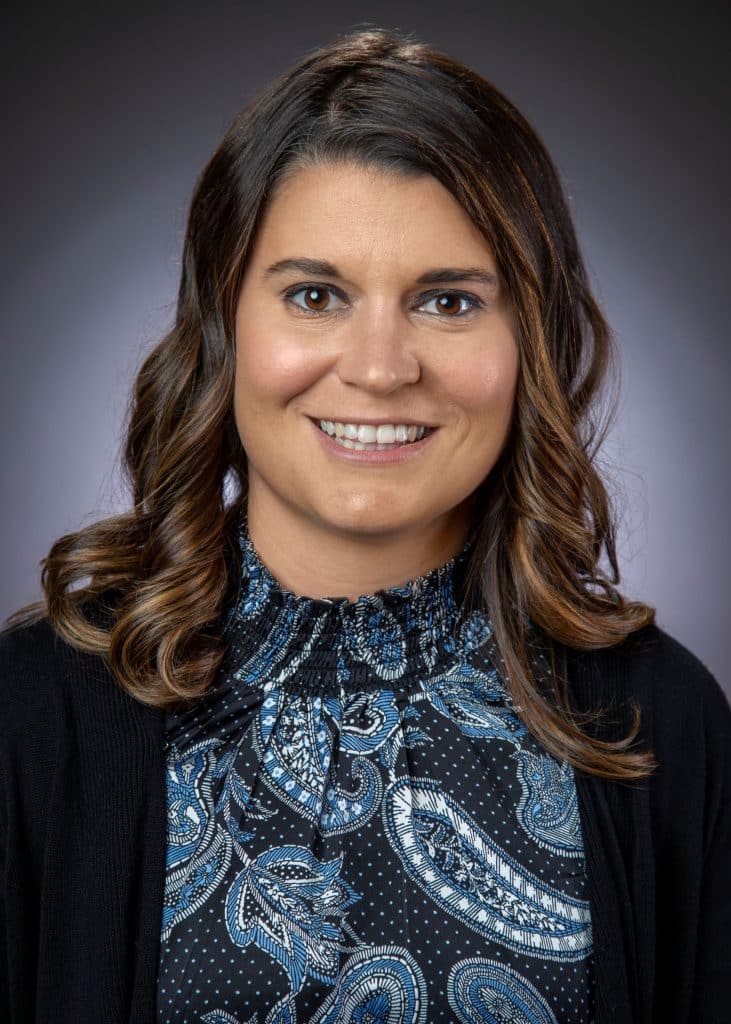Northeast Georgia Medical Center (NGMC) Gainesville was verified by the American College of Surgeons as a Level I trauma center in February 2023. The hospital, which is about 60 miles northeast of Atlanta, is now the fourth ACS-verified Level I trauma center in the state of Georgia.
The trauma program director at NGMC Gainesville is Jesse Gibson, MBA, BSN, RN, TCRN. Gibson is a recognized leader in trauma program development and performance improvement, and she is the 2022 recipient of the STN Leadership Award from the Society of Trauma Nurses.
Trauma System News recently interviewed Gibson by email about her team’s road to Level I verification.
What was your team’s single biggest challenge in the journey to Level I and how did you overcome it?

Our biggest challenge has been around the research and publication work. Building a trauma research program is not easy, especially in a community-based academic institution. We were fortunate to get support from our administration to hire two trauma research coordinators, and they have done a tremendous job of helping build the infrastructure we need.
Unfortunately, there is no play book for how to do that, and so there has been a lot of self-learning, phoning friends and “trial by fire.” Trauma people tend to work at a fast operational tempo, but we are learning that research requires patience. This has been a challenge for all of us but we are making strides each day.
What part of the verification process surprised you most?
To me, there were no real surprises with the ACS process. We had previously undergone a Level II verification in-person. The virtual format was different, but no surprises.
I think what has surprised me the most has been the overwhelming support and interest from our community. Those of us on the inside of trauma care understand that, clinically, Level I and Level II centers are required to have the same capabilities — but to the public, I think the Level I verification announcement added a layer of trust. They now see us as the highest level of care. For our team, that has given us a lot of pride to know we can provide that level of comfort.
If you could change one thing about the ACS verification process, what would it be?
As painful as the process seems to be when you are in the middle of it, I believe every bit of it is necessary. Every time we have been surveyed, either by our state or by the ACS, we have become better.
What piece of advice would you give to other trauma leaders who want to achieve a higher designation?
Gaining administrative commitment early is essential. The trauma center leaders must be able to clearly articulate the rationale for wanting to achieve a higher verification/designation, and they must be able to identify existing gaps to their leaders.
In our case, we emphasized the existing infrastructure and the minimal gaps between our program as a Level II trauma center versus becoming a Level I trauma center. We tied our proposal to our health system’s mission statement — “Improving the health of our community in all that we do” — and stressed that becoming a Level I trauma center would allow us to truly live out this mission even more so. We placed the strongest emphasis on how becoming a Level I trauma center would impact future trauma care in our community through process improvements and research, through training tomorrow’s surgeons and through recruiting top talent — from physicians to nurses and the support staff in between. We examined impacts from a volume/capacity standpoint, from a quality standpoint, from a financial standpoint and from a people standpoint. After thorough review of all potential impacts, the case was clear that the gaps were minimal and the positive impact would be high.
For trauma center leaders who want to achieve a higher designation, I would also suggest pulling a “team of experts” together to explore what increasing your trauma center level would look like. This team should include senior leaders, finance partners, strategy partners, medical staff and others. We often try to do it all in trauma, but this decision cannot be made in isolation as it must align with your institution’s mission. Your high-level leaders must be actively involved in the exploration and decision process.
With Level I verification under its belt, what is the NGMC trauma team most excited about right now?
We are excited to take a moment to pause and reflect on the work that has been done to get us here. This has been a long and tiring process for the trauma team. We hope to celebrate for a short bit and continue providing the best care for our community.

